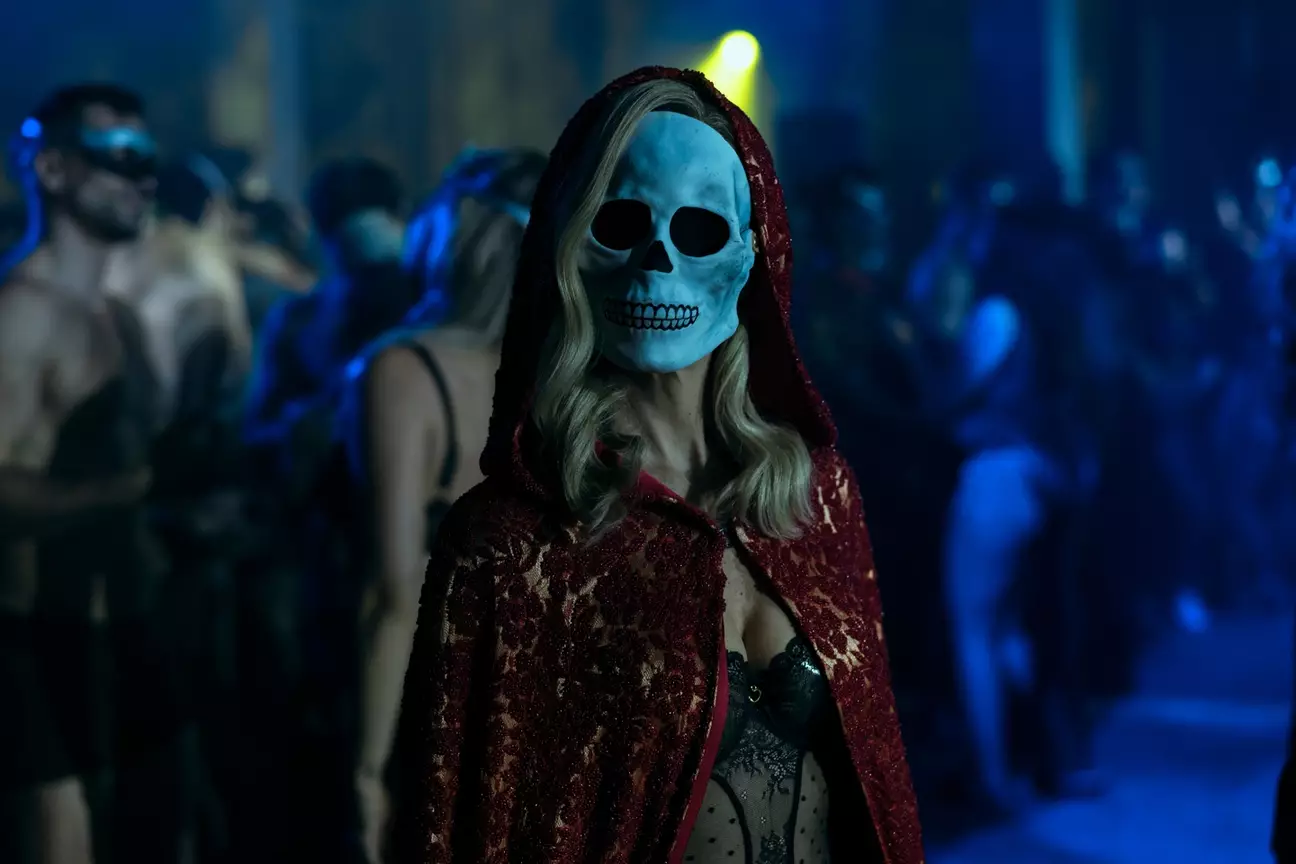
Exploring Spooky Realities of Capitalism
The Fall of the House of Usher immerses viewers in a nightmarish spectacle, unveiling the demise of those who once seemed invincible, and forcing them to confront the consequences of their insatiable hunger for affluence. Mike Flanagan’s latest series delves into the lives of billionaires, the epitome of the 1% holding the world’s wealth, as they pay the highest price for their relentless pursuit of opulence. The socio-economic structure, entrenched in advanced capitalism on a patriarchal foundation, trembles and crumbles. The House of Usher whispers a haunting warning, urging us to flee this monstrous mansion before being buried in its toxic debris.
The Fall of Fortunato Pharmaceuticals: A Gripping Narrative
The series chronicles the fall of the Usher enterprise, Fortunato Pharmaceuticals, a pharmaceutical giant thriving on the highly addictive opioid drug, Ligodone. Roderick Usher (Bruce Greenwood), the CEO, mourns the loss of his six offspring during their funeral, setting the stage for a gripping narrative. The priest’s words resonate, underscoring that death, the ultimate equalizer, awaits all, regardless of socio-economic status.
The storyline transports us to a decaying mansion, where Roderick invites Auguste Lupin (Carl Lumbly), a detective relentless in exposing Fortunato Pharmaceuticals’ crimes, to hear his confession. Usher weaves a tale that unravels his humble beginnings, meteoric rise, and the gruesome demise of his entire bloodline.

Beyond Jump-Scares: Masterful Capture of Poe’s Romanticism

The Fall of the House of Usher stands as a sublime addition to Mike Flanagan’s impressive body of work, offering perfect Halloween entertainment. Drawing inspiration from Edgar Allan Poe’s tale, the series is saturated with gothic sentiment, delivering a terrifying blend of gore, suspense, and darkness that breathes eerie freshness into the horror genre. Flanagan, no stranger to literary adaptations, previously brought Shirley Jackson, Henry James, and Christopher Pike’s works to life in The Haunting of Hill House (2018), The Haunting of Bly Manor (2020), and The Midnight Club (2022), respectively.

This series isn’t reliant on cheap jump-scares; instead, it masterfully captures Poe’s romanticism and underlying terror. Flanagan invites actors familiar to us from his prior projects. The characters are depicted with witty incisiveness, introducing Roderick’s eldest children, including the awkward Frederick (Henry Thomas) and the secretly perverted Tamerlane (Samantha Sloyan). The Usher bastards, products of Roderick’s extramarital affairs, are portrayed vividly—PR genius Camille (Kate Siegel), video game mogul Napoleon (Rahul Kohli), scientist Victorine (T’Nia Miller), and the hedonist Prospero (Sauriyan Sapkota).
Carla Gugino shines as the mysterious Raven, contributing to the series’ most frightening scenes. A standout character is Usher’s twin sister and COO of Fortunato Pharmaceuticals, Madeline (Mary McDonnell), who navigates the game using tricks like her sexuality to become “one of the boys.” Yet, in doing so, she sacrifices her individuality, her femininity crushed by patriarchal capitalism, a system enforcing conformity under the shadow of the Father.

Decoding Pain: The Conceptual Core of The Fall of the House of Usher

The Fall of the House of Usher revolves around the concept of pain—physical, emotional, and metaphysical—and humanity’s desire to escape it. It questions the utopia promised by the pharmaceutical industry, built on patriarchal dogmas and a capitalist drive for perpetual progress that exploits human and earthly resources, pushing us to the brink of extinction. The series advocates for new solutions in medicine and psychiatry, critiquing legal yet dangerous drugs like Xanax while acknowledging positive steps such as marijuana legalization and renewed interest in psychedelics.
The undeniable truth is that it’s not just Roderick Usher but the current socio-economic system that enables these crimes. Toppling one giant company won’t suffice, as another will take its place. Yet, the narrative dares to explore the possibility of a new order, a world where capitalism undergoes transformation and the patriarchal sameness crumbles. Perhaps, with the demise of the Father figure, true difference can emerge.
The Fall of the House of Usher subtly hints at an escape from the house of the Father, urging a break from patriarchal rules. Embracing femininity as a potent force, untethered from societal norms, becomes the key to ushering in a new order—one built on genuine differences. The House of the Father must fall for this transformation to occur.

